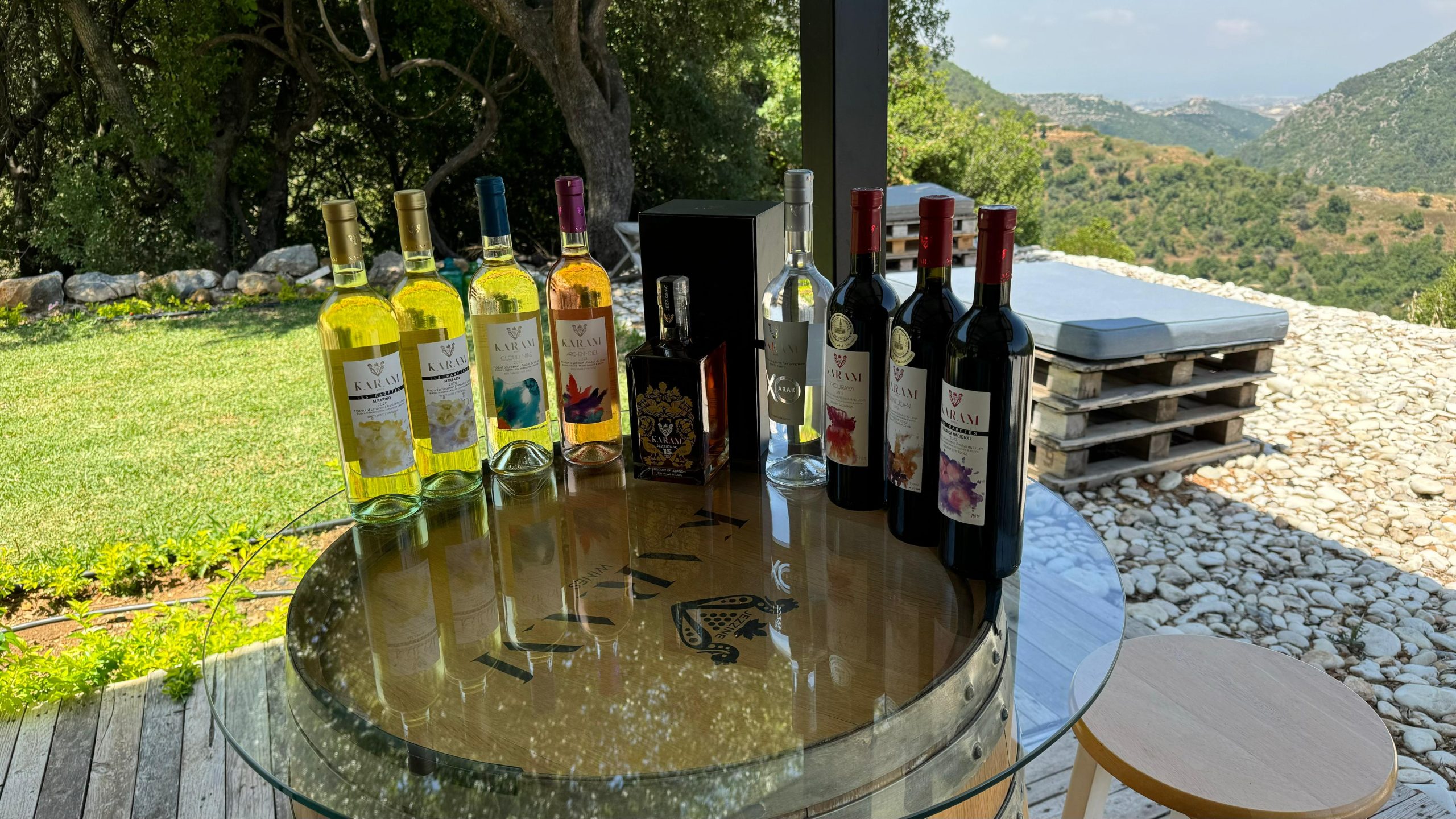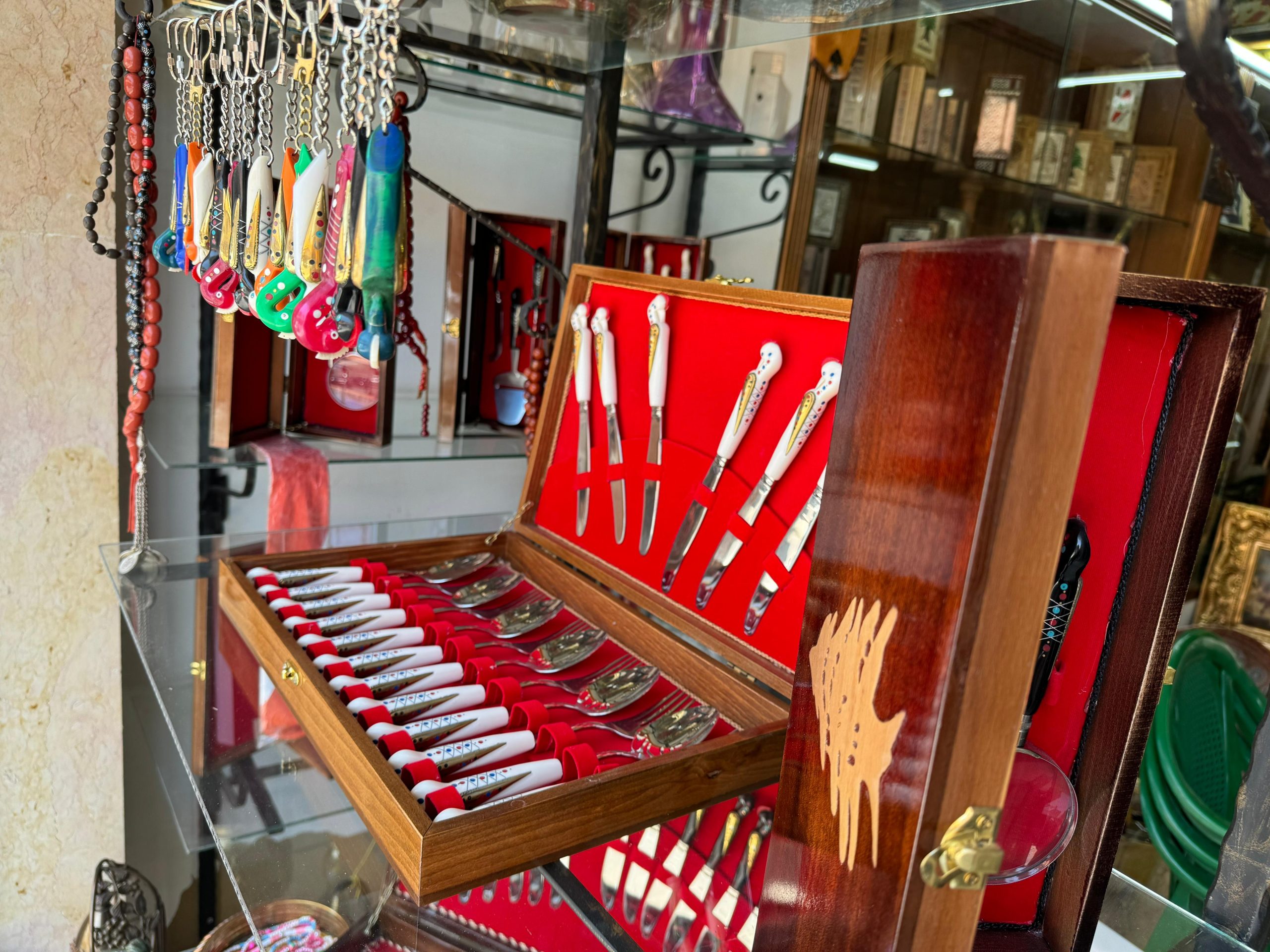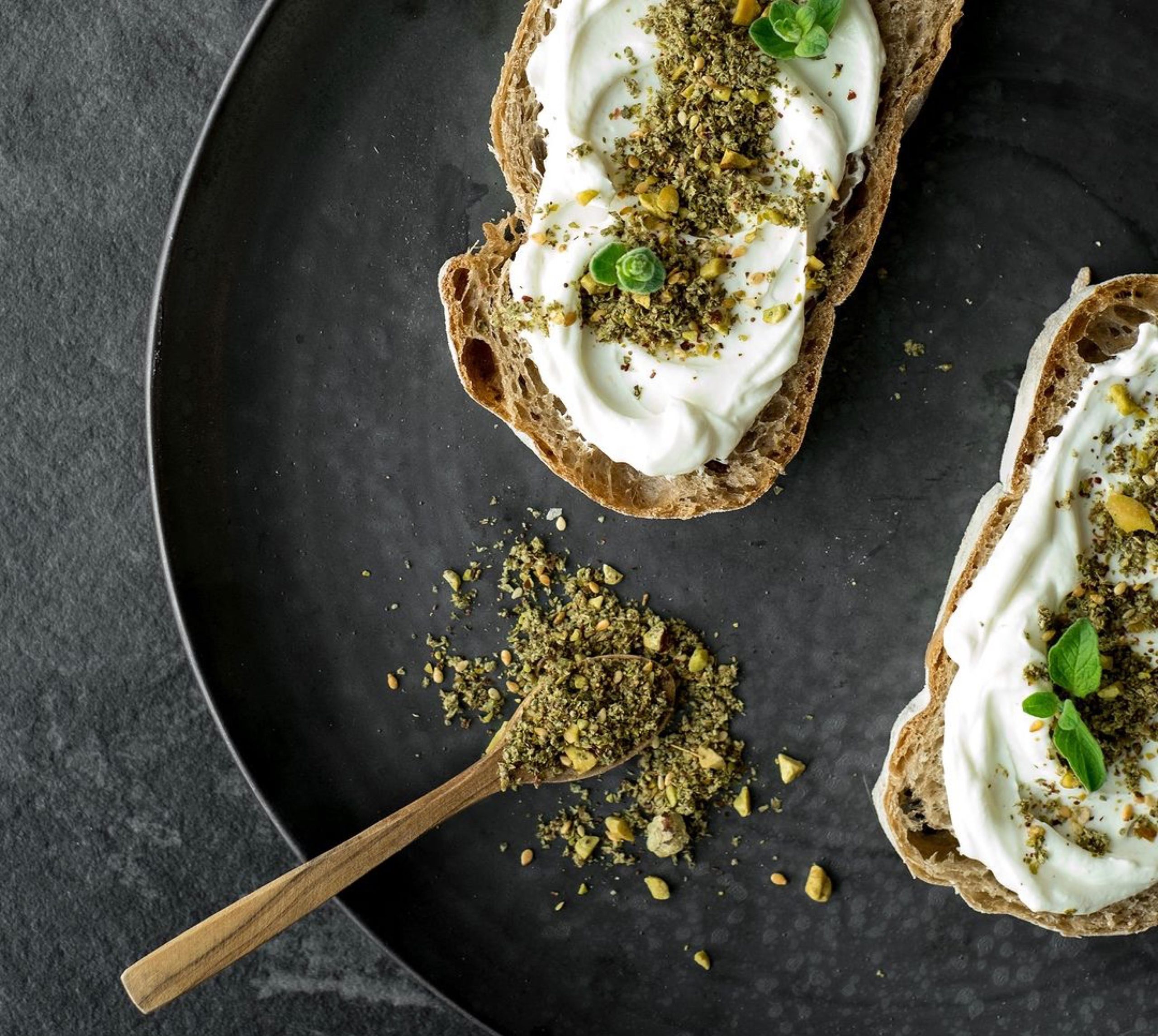Besides its beautiful landscapes, Jezzine is revered for its rich traditions and talented artisans. As USAID’s Trade and Investment Facilitation (TIF) project is working to raise the profile of the district and improve its tourism offering, we take a moment to appreciate the unique souvenirs of Jezzine.

Karam Winery
History
In the late 1950s, in a small South Lebanese town, a young boy named Habib assisted his grandmother Latifeh in harvesting grapes for the production of arak. As he looked up at the sky and observed passing aircraft, he nurtured a dream of one day becoming a pilot. Habib ultimately transformed this aspiration into reality by pursuing a career as a pilot.
Vineyards
Karam Wines’ vineyards are located at elevations reaching up to 1,400 meters above sea level. This unique positioning, with a westward orientation toward the Mediterranean Sea, imparts the wines with a harmonious acidity, distinctive freshness, modest alcohol content and the minerality characteristic of the Jezzine region. Each grape variety is planted in its optimal terroir, utilizing specific agricultural methods tailored to the geological diversity of the Southern region. Karam Wines also adopts a small-batch approach, vinifying each plot separately to unveil its true essence and terroir attributes, thereby creating the perfect blend.
This exceptional environment has also enabled the Karam family to experiment with unusual grape varieties not previously cultivated in Lebanon. The “Les Raretés” collection, meaning “rarities” in French, complements the entire range of Karam Wines. It comprises single-varietal wines such as Albarino from Spain, Touriga Nacional from Portugal, Saperavi from Georgia and Meksassi, an indigenous grape variety of Lebanon, particularly from the Jezzine area.
Tours
Visits and tastings at the winery can be scheduled by appointment. These tours provide a concise account of Karam Wines’ origins, a guided tour of the winery with an in-depth explanation of the winemaking process, from grape to bottle, and a supervised sampling of the full range of 12 wines.

Jezzine’s firebird cutlery
The Source
Traditionally, black firebird handles were crafted from cow or bull horns, turning jet-black when polished. These materials used to be imported but are now locally sourced. White firebird handles were made from camel bone, often imported from Egypt, Iraq, Syria, and parts of Lebanon. The stainless steel bears the company’s name and usually comes from Italy or France. The firebirds were decorated with colored resin pipes, pure silver sheets, and brass sourced from Lebanon dating almost 250 years ago.
The Crafting Process
- Each firebird is made of two identical pieces of horn/bone that are joined together.
- From a whittled finger-sized section that is clamped steady, a distinct bird-shaped outline is formed and when satisfactorily uniform, the piece is buffed.
- Interlocking two-millimeter grooves are inlaid with tiny strips of silver and filed to create a silver-lined look.
- The brass wings come with a series of pre-bored small holes. Aligning holes are drilled into the corresponding carved bird piece. On a wooden block, metal ‘teardrops’ are shaped with a mallet, then hand-drilled and nailed in place.
- Thin colored resin pipes are cut into half-inch pieces, fitted into the brass wings and filed even. They add a touch of color to the bird.
- The head is etched with an electric circular saw. Red resin cut into small triangular shapes is used to create the traditional “rooster” comb. Individual hand-sewn notches achieve the pleasing scalloped effect.
- For 30 seconds, the bird is buffed on a machine that resembles a spongy wheel, covered with something akin to soft sandpaper. Next is smoothing with what looks like a mini black rubber tire, followed by an efficient polishing on a third wheel similar to a small mop.
The Good Thymes – Jezzine
The Good Thymes story began amid the lush green landscapes of Lebanon, when its founder, Fady Aziz, channeled his creative spirit into his passion for thyme. The result was a thoughtfully crafted collection of thyme infusions that brought about a revolution in the world of herbs. The Nutty, Fruity, Hot and Superfoodie Zaatar blends quickly gained popularity and became a staple in households.
As The Good Thymes expanded its product lines, the mission remained firmly rooted in a deep love for the herb, a commitment to preserving the land, and a drive to promote rural development. The company is dedicated to ethical herb production and the implementation of Fair Trade practices. Moreover, it takes pride in empowering women in agriculture, with over 60% of its workforce being women.
From the rural landscapes of Lebanon to your home, The Good Thymes ensures that the thyme carries with it the distinct aroma of the land, the dedication of every farmer, and the versatility of authentic Lebanese wild Zaatar.
About The Farm Table
The Farm Table offers an immersive experience on their farms located in the heart of Kfarhouna. There, you can partake in an authentic and customized agricultural journey centered around thyme. Whether you’re joining for a farm-to-table feast, assisting local farmers, or simply relishing the picturesque scenery, you’re guaranteed to leave with a renewed connection to the land.
For further information call the Jezzine Tourism Office on +961 7 780 563.
This article is part of a joint project to promote tourism destinations across Lebanon, launched by the Trade and Investment Facilitation (TIF) activity, funded by the United States Agency for International Development (USAID), and Hospitality Services. The content of this article is the sole responsibility of Hospitality Services, and does not necessarily reflect the views of USAID or the United States Government.
If you liked reading this, check our article of Jezzine festivals.
Loading


